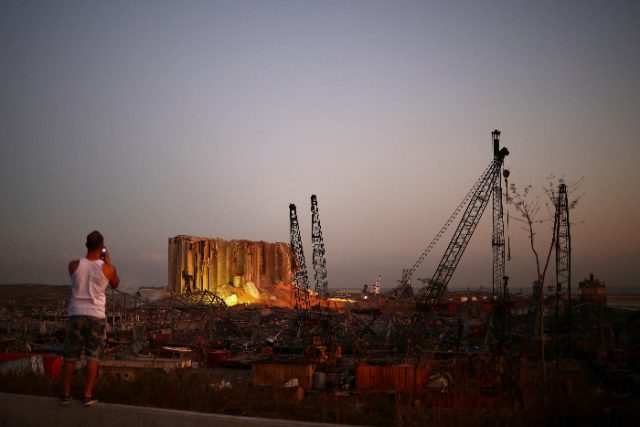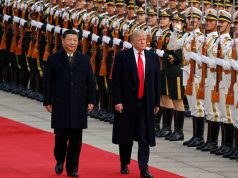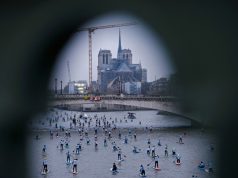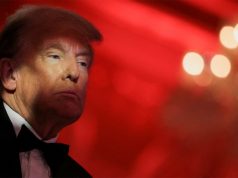
Veteran actor Robin Padilla, who is also a vocal supporter of the administration, claimed that the tragic Lebanon explosion was a terrorist attack to justify the counter-insurgency law in the Philippines.
Last Tuesday, August 4, two massive explosions, one of which was considered to be equivalent to a 3.3-magnitude earthquake, struck the city of Beirut in Lebanon and left 145 people dead and thousands more injured.
Lebanon’s Prime Minister Hassan Diab announced that the improper storage of 2,750 tons of ammonium nitrate, a highly explosive chemical compound, in the capital caused the explosions. Lebanese officials did not call this an attack.
In a note on Instagram on August 5, however, Padilla claimed that they were caused by terrorists, citing the need for the Anti-Terrorism Act of 2020 in the country.
“Ito ang masasakit na ganap na dapat ay magsilbing babala at aral sa mga bansang may mataas na threat ng Terrorismo katulad ng Inangbayan Pilipinas,” he said.
“Ngayon malinaw na sa ating lahat kung bakit kinailangang higit na maisabatas ang Anti-Terrorism Law. Umabot na po sa ganito ang kalupitan ng tao sa kanyang kapwa. Wala ng awa ang mga Terorista sa sibilyan,” he added.
President Rodrigo Duterte signed controversial anti-terrorism bill last July 3 amid widespread opposition from legal and human rights groups.
Since its passage, more than 20 petitions were filed before the Supreme Court to challenge its constitutionality.
In his previous post on Monday, August 3, Padilla also passed the blame for the re-imposition of the modified enhanced community quarantine over Mega Manila to those who constantly complain to the government, which was the same argument some government officials use in their addresses.
“Ramdam na natin lahat sa ating mga tahanan ang unti unting pagkalimas ng ating mga savings at hindi ito problema lang natin buong mundo ang suliranin na ito kayat imbes na mabuhay at magising ka araw araw sa pagrereklamo at kakabatikos aba’y kumilos ka para makatulong at mapakinabangan una ng sarili mo, mga pamilya mo at ng Inangbayan. Hindi ito ang oras ng pamumulitika!” he said on the platform.
Duterte approved the recommended two-week MECQ in response to the distress call of the struggling health care system in the region amid the continued surge of COVID-19 cases.
‘Mas pinili ko paniwalaan ang American president’
To substantiate this claim, Padilla shared a screenshot of and attached the link of an article from Business Insider telling US President Donald Trump’s speculation that the deadly blast was an “attack,” thereby contradicting the Lebanese government.
Trump floated this theory at a press briefing Tuesday evening.
“I’ve met with some of our great generals and they just seemed to feel that it was. This was not some kind of a manufacturing explosion type of event … They would know better than I would, but they seem to think it was an attack — it was a bomb of some kind, yes,” he was quoted as saying.

In the comment’s section of Padilla’s Instagram post, he said that he’d rather believe the statement of Trump and his officials instead of Lebanon’s officials.
“Mas pinili ko paniwalaan ang American president at ang mga heneral ng Estados Unidos kaysa sa opisyal na pahayag ng Lebanon,” Padilla said.
“Kahit baguhin pa ng America ang kanilang official statement wag na wag ninyong kalilimutan na kayoy binalaan ni pangulong trump at pati na rin ako, itong post na ito ay babala patungkol sa bangis ng mga terorista sa henerasyon na ito,” he added.

What do we know so far about the Beirut explosions?
The Department of Foreign Affairs announced that two Filipinos were killed and 20 more were injured in the massive explosions in Beirut, Lebanon.
The DFA said there are over 31,000 Filipinos in the war-torn country, mostly undocumented workers.
According to the New York Times, the tragedy which left more than $3 billion worth of damages occurred at the Beirut port’s warehouses, where tons of ammonium nitrate are located.
A science website called Scientific American explained that while ammonium nitrate does not burn on its own, it can “violently” decompose at high temperatures.
“At high enough temperatures, however, ammonium nitrate can violently decompose on its own. This process creates gases including nitrogen oxides and water vapor. It is this rapid release of gases that causes an explosion,” the article said.









